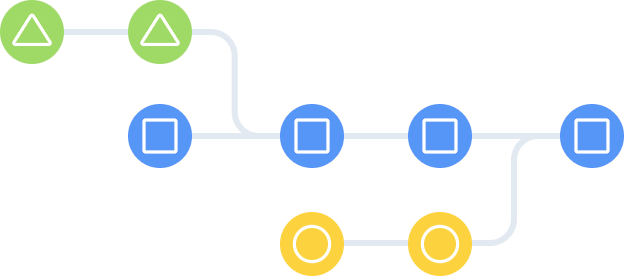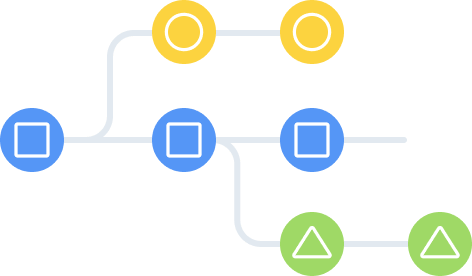What is Angular used for and should I learn Angular?
Angular is an open-source, front end framework used to create dynamic web apps. Developed by Google, the framework cuts down unnecessary code for dynamic front end apps. Angular is a component-based framework, meaning that code is easily recycled, has better readability, and is easier to test and maintain. These Angular features are the reasons why Angular has remained popular since its launch in 2010.
Should I learn Angular? With so many front end frameworks out there, why use Angular? If you’re already familiar with JavaScript and want to learn more about front end development, then Angular is perfect for you. Built with TypeScript, which relies on JavaScript, you’ll be able to use Angular features like static typing, interfaces, and classes, without having to learn a completely new language. The structure and design patterns of the framework also makes it easy for beginners to test and maintain the code.
Angular’s vibrant and active community is constantly evolving and developing new tools. With an ever growing community, including Google’s public support for Angular, you’ll be able to find existing tools to help you build any Angular features. Angular’s growing popularity means you’ll likely have an exciting and long-lasting career if you invest in learning Angular now.
Why should I practice Angular by building projects?
Project-based learning is a method of learning where you learn a skill through working on a project. This type of learning allows you to learn not only the theory, but also how to apply those skills.
By building a Angular project, you'll practice the high-level logic of your code and project, and see how each individual line can impact your application. You will also gain problem-solving skills and how to fix it. With so many Angular projects available, finding an idea that interests you will make the learning process more fun and sustainable.
When you finish building a project, you will have learned and practiced Angular techniques, gained problem solving skills, learned how to ask questions, and have a finished project to show off.
How do I know which Angular projects are best for learning Angular?
The best way to learn Angular is to practice Angular by building as many projects as possible. There are three factors you should consider when picking the right Angular project: your skill level, goals, and interest.
You want to have a good idea of your skill level and choose Angular practice projects that are not too easy or too hard for you. If you work on Angular projects that are too easy, you won’t progress in your coding abilities. However, if you choose projects that are too difficult, you may get stuck, never finish the project, and feel discouraged. Therefore, you want to choose Angular projects that are just a little bit above your current skill level.
Now, you also want to build Angular projects that not only allows you to practice Angular, but also lets you show off your skills on your portfolio. So think about the types of Angular projects you want to put on your portfolio and jobs you’re interested in as a developer. Think about what your long-term goals are and pick Angular projects that align with them.
Lastly, you definitely want to choose Angular projects that you’re actually interested in and feel connected to. Learning by building Angular projects you’re interested in will help you stay motivated. You’ll also be more likely to want to go above and beyond to make your Angular project stand out in the crowd.
Can Angular beginners learn by building Angular projects?
Angular projects are a great way for beginners to learn. Two major obstacles beginners face when learning Angular are not knowing why you’re learning Angular and losing motivation. By learning Angular through building projects, you will be able to overcome both hurdles.
When you’re learning Angular, you may not know how to apply Angular theories in the real world. But when working on beginner Angular projects, you immediately learn how each line of code impacts your project. By giving theory context, you’ll understand how to apply theories and find more resources to complete your Angular project. These Angular projects for beginners can also help you build up your portfolio early on. Each Angular project you finish can be incorporated into your portfolio to demonstrate your new skills.
Another issue that often comes up for beginners is losing motivation. However, when it comes to projects, you can pick a beginner Angular project that you’re interested in. Not only will you be more motivated when you work on something interesting, you’ll also want to continue to improve the project. As your Angular project comes together, the sense of accomplishment will give you the momentum to keep going, even when things get hard. Additionally, you’ll learn how to approach problems from multiple angles and teach yourself how to search for answers. The ability to problem-solve is arguably one of the most important skills a developer should have.
















